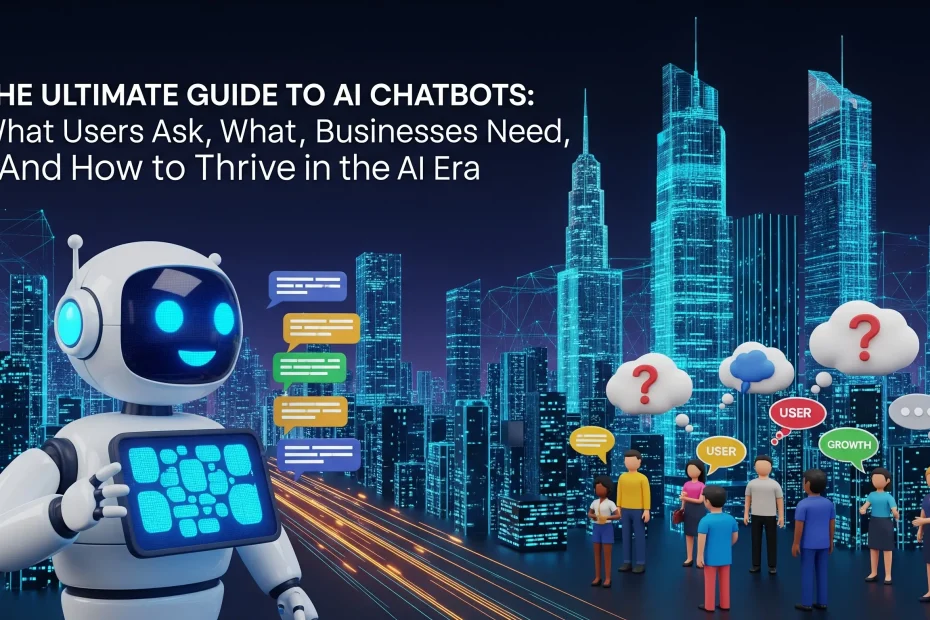Your comprehensive guide to the world of AI chatbots and ChatGPT. We answer the most-asked questions, explore real-world challenges in e-commerce, real estate, and logistics, and reveal how to optimize your strategy for the future of search.
The Definitive Guide to AI Chatbots and ChatGPT: Navigating the New Digital Frontier
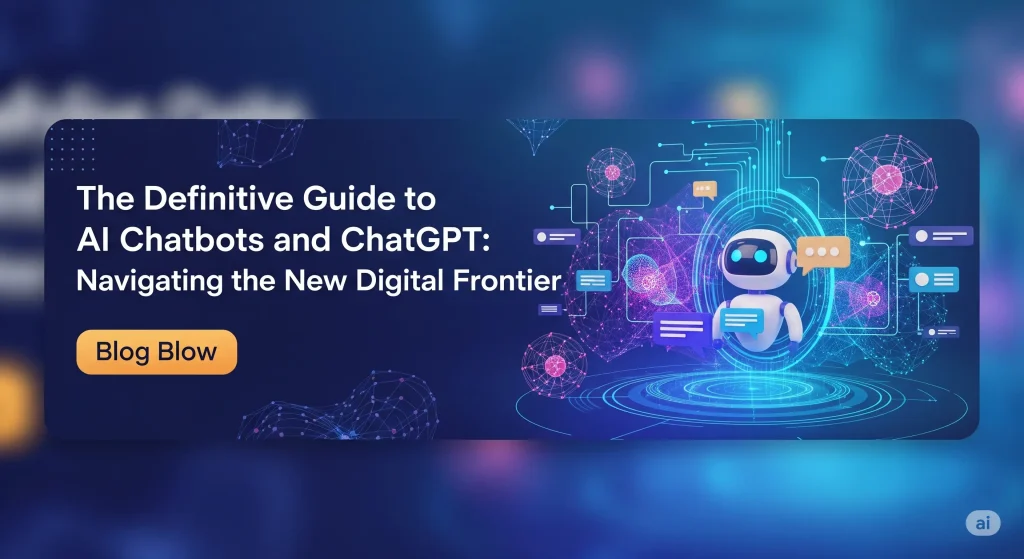
The rise of AI chatbots like ChatGPT has reshaped the internet, transforming how we search for information, interact with businesses, and even create content. From a tool for tech enthusiasts to an everyday utility, the questions surrounding this technology have evolved. This guide will provide detailed, beneficial answers to the most common user queries, and offer solutions to the real-world challenges faced by businesses in key U.S. industries.
Answering the Top Questions Users Ask About AI Chatbots in the USA
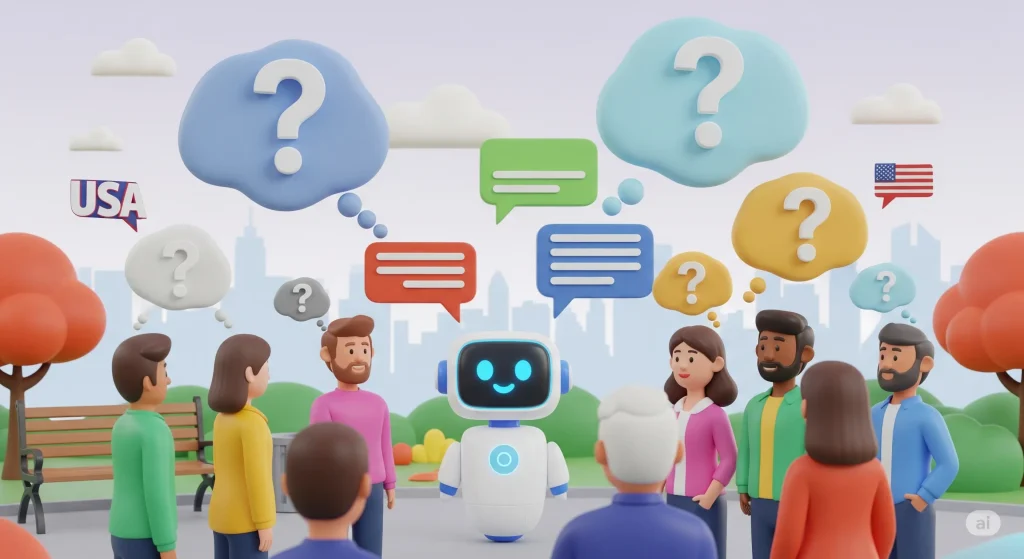
Users in the United States, in particular, are grappling with the practical applications, safety concerns, and future implications of this powerful technology. Here are the answers they're looking for.
1. What is an AI chatbot and how does it work?
An AI chatbot is an application that simulates human-like conversation, either through text or speech. Unlike older, "rule-based" chatbots that rely on pre-written scripts and can only answer questions that follow a specific path, modern AI chatbots are powered by Large Language Models (LLMs).
- How they work: LLMs, like the one that powers ChatGPT, are trained on a massive amount of text data from the internet. They learn patterns, grammar, and context, allowing them to "understand" and generate natural-sounding language. When you ask a question, the model breaks down your query, processes it through its vast knowledge base, and generates a response by predicting the most likely sequence of words. This is what makes the conversation feel so fluid and intelligent.
2. What are the benefits of using an AI chatbot?
The benefits extend far beyond a simple Q&A. For users, they offer instant access to information, a powerful tool for brainstorming, and a way to quickly summarize long articles or documents. For businesses, the advantages are transformative:
- 24/7 Customer Service: Chatbots can handle common customer queries at any time of day, reducing wait times and freeing up human agents for more complex issues.
- Scalability: A single chatbot can handle thousands of conversations simultaneously, something a human team could never do.
- Efficiency: From drafting marketing copy to automating data analysis, AI-powered chatbots streamline workflows and boost productivity.
3. Will AI chatbots replace human jobs?
This is one of the most pressing questions and a significant concern for many Americans. The more accurate and helpful response is that AI chatbots are more likely to transform jobs rather than eliminate them entirely. Instead of replacing human workers, they will act as powerful assistants, automating repetitive tasks and allowing people to focus on higher-level, creative, and empathetic work that requires human judgment and social intelligence.
- Example: A customer service agent might no longer spend their day answering "Where is my order?" but will instead handle complex returns, resolve emotional disputes, or nurture long-term customer relationships.
4. Can ChatGPT replace search engines or content creators?
While ChatGPT and other conversational AIs are fundamentally changing how we find information, they are not a one-for-one replacement for traditional search engines. They excel at providing a single, synthesized answer, but often lack real-time data, citations, or a broader perspective from multiple sources.
- The Future of Search: The rise of Answer Engine Optimization (AEO) is a direct result of this shift. Websites that provide clear, structured, and factual answers are more likely to be cited by AI models, driving new forms of visibility.
Part 2: Addressing the Real-World Issues on AI Chatbot in Key Industries
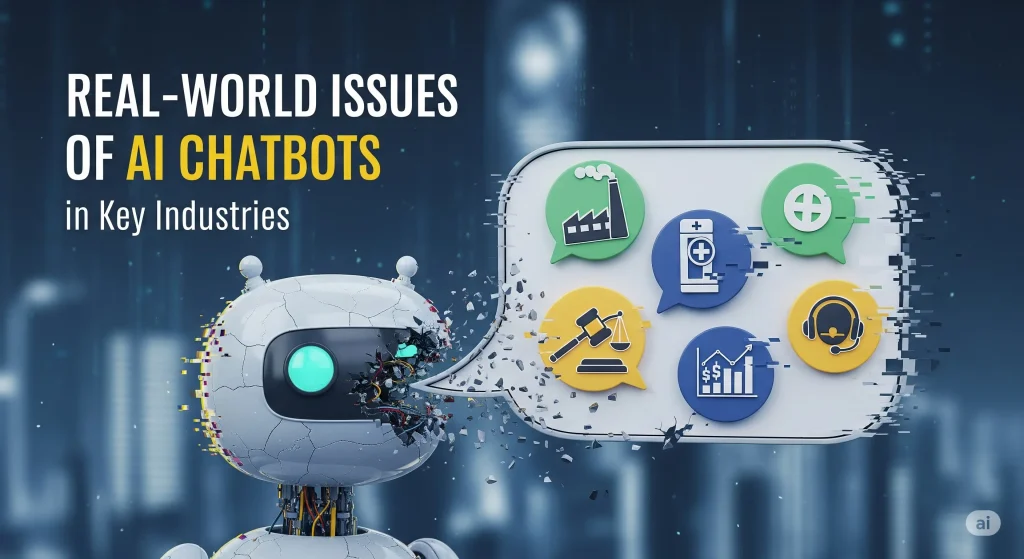
While the potential is immense, the implementation of AI chatbots on business websites is not without its challenges. Here are the specific issues and solutions for three major sectors.
Estate Agency Websites

The high-touch, trust-based nature of real estate makes it a tricky environment for a chatbot.
- Issue: Inaccurate Information & Lack of Context: A bot might pull an old listing or misinterpret a client's needs. The stakes are too high for a mistake.
- Solution: Integrate the chatbot with a live CRM and MLS database to ensure real-time data accuracy. Program the bot to identify complex, emotional, or legally sensitive queries and immediately escalate the conversation to a human real estate agent. You can also implement a system that requires the agent to confirm the information before sending it to the client.
- Issue: Lack of a Human Touch: The human connection is everything in real estate.
- Solution: Use the chatbot as a lead-nurturing tool. For example, a bot can ask preliminary questions about a user's budget, neighborhood preference, and timeline. Once it has collected this information, it can schedule a call or meeting with a human agent who can use that data to have a more personalized and productive conversation.
E-commerce Websites
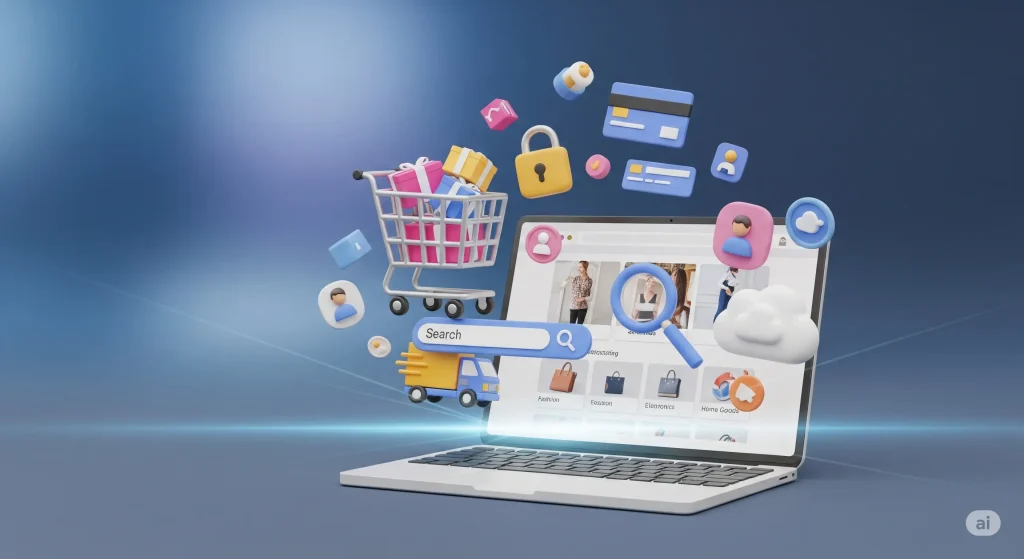
E-commerce thrives on convenience, but a bad chatbot experience can quickly lead to a lost sale.
- Issue: Poor User Experience & Lack of Seamless Handoff: A bot that can't understand a user's intent or gets stuck in a loop is a major frustration.
- Solution: Invest in a hybrid chatbot system. The bot should handle routine tasks like tracking a shipment or processing a return, but if the user types phrases like "I'm angry," "I need help with this," or "speak to a person," the system should instantly connect them with a human agent and provide the full chat history.
- Issue: Data Security Concerns: Customers are hesitant to share sensitive information like payment or personal details with a bot.
- Solution: Ensure the chatbot's system is fully compliant with data privacy regulations like GDPR and CCPA. Be transparent about how data is collected and used, and always provide a secure, human-led option for sensitive transactions.
Logistics Websites
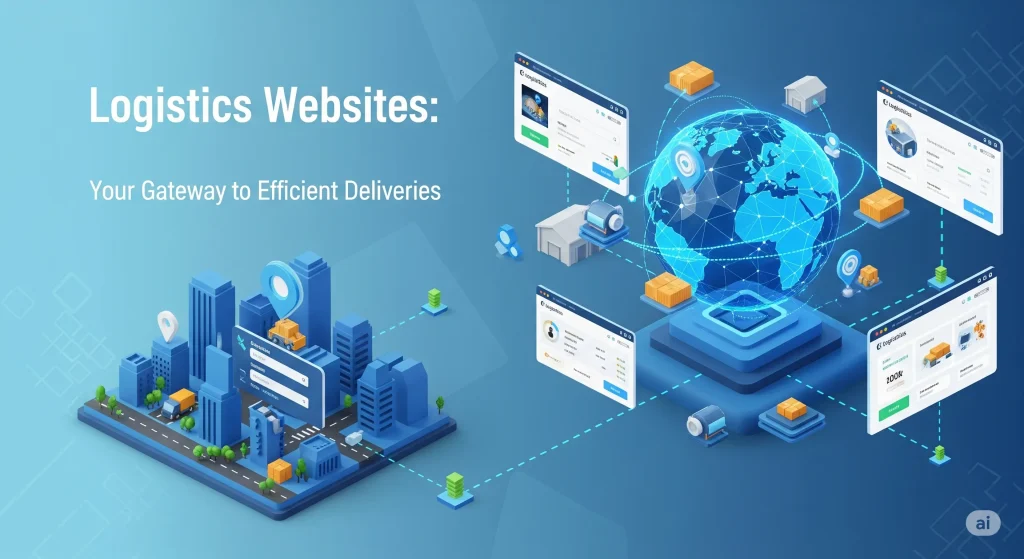
In logistics, efficiency and accuracy are non-negotiable.
- Issue: Inability to Handle Exceptions and Complex Issues: A bot can tell a user their package is in transit, but it can't explain why it's held up in customs or what a freight claim entails.
- Solution: Create a robust knowledge base and program the chatbot to pull information from a centralized database. The bot should be trained to recognize a "trigger phrase" that indicates a complex issue, such as "late package delivery" or "customs delay," and then offer the user a clear path to a human expert.
- Issue: Lack of Integration with Key Systems: A bot that can't access real-time tracking data is useless.
- Solution: The chatbot platform must have deep integrations with your existing systems (e.g., TMS, WMS, and CRM). This allows the chatbot to provide real-time updates and accurate information on order status, inventory levels, and shipping schedules, making it a truly valuable tool.
The Role of tdx.ai in the Next Generation of AI
As AI chatbots become more sophisticated, the need for specialized, industry-specific solutions grows. This is where tdx.ai comes in. Unlike generic, off-the-shelf chatbots, tdX.ai focuses on building autonomous AI agents that can think, plan, and act on your behalf. They are designed to understand complex context and execute multi-step tasks.
For businesses struggling with the issues outlined above, tdX.ai provides:
- Custom AI Agents: They develop tailored AI solutions that are deeply integrated with your existing software, allowing them to access and act on real-time data from your CRM, inventory, and logistics systems.
- Intelligent Automation: From automating sales follow-ups for real estate agents to handling complex customs queries in logistics, these agents are built to handle the tasks that generic chatbots can't.
- Seamless Human-AI Collaboration: The agents are designed to know when to escalate a conversation to a human and provide the human agent with all the necessary context, ensuring a smooth and efficient customer experience.
By focusing on these sophisticated, goal-oriented AI systems, tdX.ai is leading the charge in transforming industries and helping businesses solve the very challenges that have held back the widespread adoption of AI chatbots.
